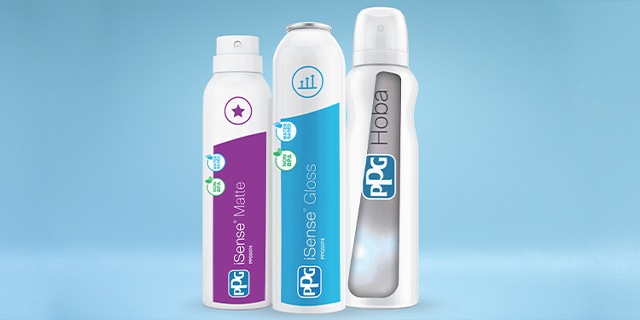An interview between 'Canmaking News' and Hella Gourven, Global Personal Care Coatings Segment Manager, PPG
Overall, what does the aerosols market look at the moment? (i.e. What innovations are there? Is the industry doing well? What challenges may companies be facing?)
The aerosols market faces increasing regulatory and consumer pressure to ban all bisphenols that pose concerns to safety and the environment. More recently, the European Food Safety Authority (EFSA) proposed a new Tolerable Daily Intake (an amount of a substance in food or drinking water assessed as safe on a long-term basis) for BPA that essentially bans it from use in Europe. The move has raised the attention of the global can making industry and accelerated discussions about non-BPA conversion in markets where the adoption of non-BPA coatings was believed to be years away. While these regulations have arrived sooner than many in the industry expected, greater supplier collaboration and ongoing coatings innovation will prepare the industry for what's ahead.
For example, PPG offers a complete range of protective internal and external non-BPA coatings as part of its PPG HOBA® and iSENSE® solutions. Our technologies anticipate regulatory requirements and evolving consumer preferences for safe and versatile products. With billions of cans coated with PPG Hoba and iSense coatings to date, these products were recently improved to optimize adhesion to a high post-consumer recycled substrate.
Can you tell us about your business? What do you specialise in/ what services do you offer?
PPG offers non-bisphenol solutions for aerosol cans inside and out. The complete removal of bisphenol-starting substances from aerosol can coatings aligns with PPG's decades-long non-bisphenol strategy. Our approach results from years of research and customer feedback to ensure improved application properties and operational benefits for plants around the globe. PPG prescribes its PPG SAFEASSURE™ for enhancing the consumer-safety side of sustainability in our packaging coatings.
Also, PPG's experienced packaging coatings global technical services team works with customers to trial and optimize non-BPA coatings on their production lines for a smooth transition. The team closely monitors the ever-evolving global regulations to develop long-term regulatory-compliant solutions that make certain PPG, and its customers stay ahead of the trends.
What trends relating to aerosol can manufacturing are you currently witnessing, and what do you predict to see in 2023?
More brands and aerosol can manufacturers will convert to non-BPA solutions to comply with ongoing regulations and protect consumers and the environment. This will require stronger coating supplier relationships for an efficient transition to a viable and long-term alternative free of BPA and bisphenol-starting substances. Again, more companies turn to PPG for the long run to convert their product to non-BPA.
Do you have any advice for companies in the aerosol can manufacturing market? How can they get the most out of their business this year?
Start the non-BPA transition today by converting to non-bisphenol starting coatings solutions. Removing it from all aspects of the industrial process requires a multi-step approach, including a complete assessment of each coating, establishing an equipment-cleaning regime and developing non-BPA best practices. The most challenging consideration is how to effectively manage the transition phase when both BPA and non-BPA are produced in the same factory.
Partnering with the right coatings solutions provider, such as PPG, eases the transitional challenges and paves the way for operationally efficient, innovative and sustainable operations ready for the future.


